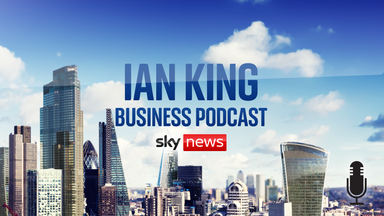Asda has been forced to share draft results with investors after its auditor failed to sign off company accounts, The Telegraph can reveal.
The supermarket’s bosses took the unusual decision to share a private presentation with lenders late last month, during which Asda revealed unaudited profits of £248m from revenues of £25.6bn for 2023.
Despite swinging to a profit after a £112m loss in 2022, earnings were dented by £441m of finance costs borne from the retailer’s £4.2bn debt pile.
The decision to delay Asda’s results comes after EY quit as the company’s auditor last July amid one of its former partners starting a romantic relationship with billionaire chief Mohsin Issa.
The Big Four accountant was subsequently replaced by KPMG, although Asda failed to make any public disclosure about the change at the time.
A source close to Asda said investors were updated every quarter, adding: “This is KPMG’s first audit and for large companies it is not uncommon for this first process to take a little longer.”
It is understood that publication of Asda’s figures is not expected until later this month, having previously been touted for March.
The delay represents the latest headache for the billionaire Issa brothers and private equity firm TDR Capital, both of which are co-owners of Asda.
Asda has been burdened by increasing finance costs triggered by high levels of debt since the Issas and TDR bought the business for £6.8bn in 2021.
A document seen by The Telegraph shows that finance costs remain a problem for the supermarket, as they jumped from £101m to £157m in the final quarter of 2023.
Financial hurdles have coincided with growing concerns around Asda’s trading performance, as the supermarket has lost customers to rivals in recent years.
The supermarket now has just 13.8pc of the grocery market, compared with 14.8pc in early 2021, according to Kantar. In contrast, Tesco commands a 27.2pc share of the market with Sainsbury’s at 15.2pc.
Sales at Asda were up just 0.8pc in the 12 weeks to 23 March compared with a year earlier, according to figures from analysis firm NIQ, which showed that the supermarket lagged behind all major rivals.
A leading retail analyst said: “When they are lagging their competitors so far in terms of sales momentum, you have to ask ‘how long can that be sustained?’”
Dwindling sales have stoked concerns among senior figures at the business, which has led to speculation over Mohsin Issa’s role in running the company.
His leadership has overseen significant cost-cutting over the past 18 months, such as reducing working hours for tens of thousands of staff in a bid to reduce its wage bill.
This has fuelled discontent among workers, which has been exacerbated by questions over the company’s ownership.
The Telegraph revealed in February that Zuber Issa was seeking to offload his 22.5pc stake in the business, which followed claims of a rift between him and his brother, Mohsin.
The pair have denied claims of a rift.
Most recently, the company was also rocked by an IT meltdown that led to thousands of workers receiving incorrect payslips.
An Asda spokesman said: “We made strong progress against our strategy in 2023 with significant investment in the business to drive long-term sustainable growth, while continuing to deleverage and repay debt.”
Disclaimer: The copyright of this article belongs to the original author. Reposting this article is solely for the purpose of information dissemination and does not constitute any investment advice. If there is any infringement, please contact us immediately. We will make corrections or deletions as necessary. Thank you.



